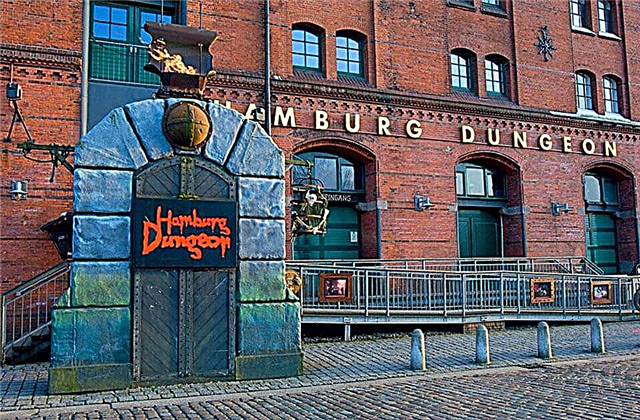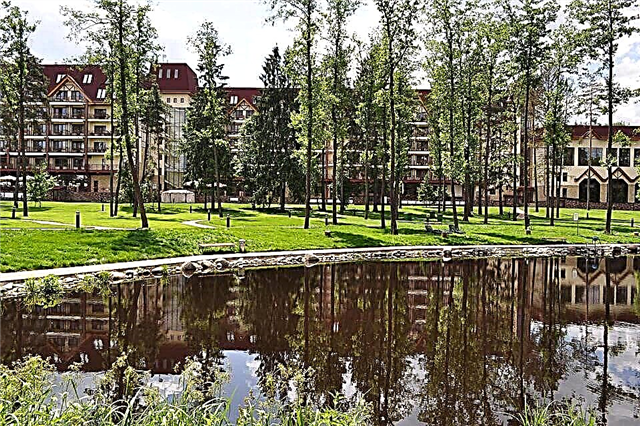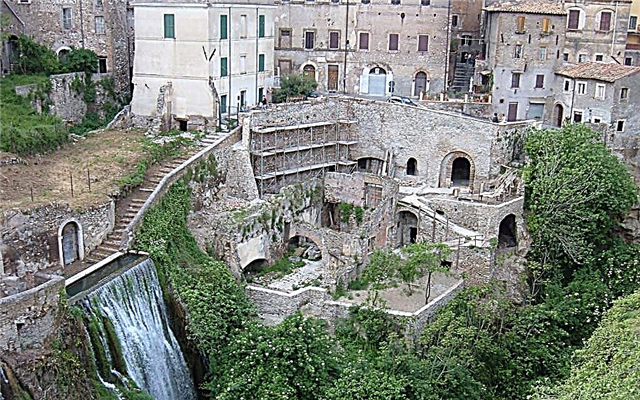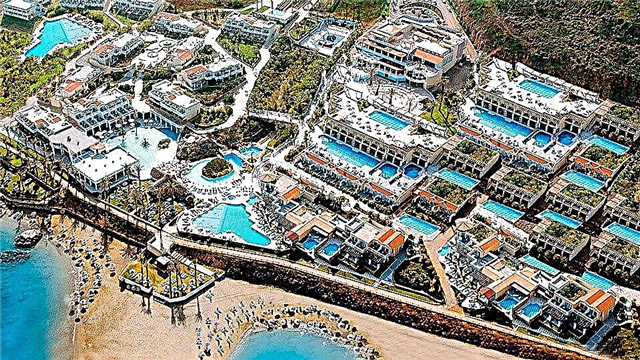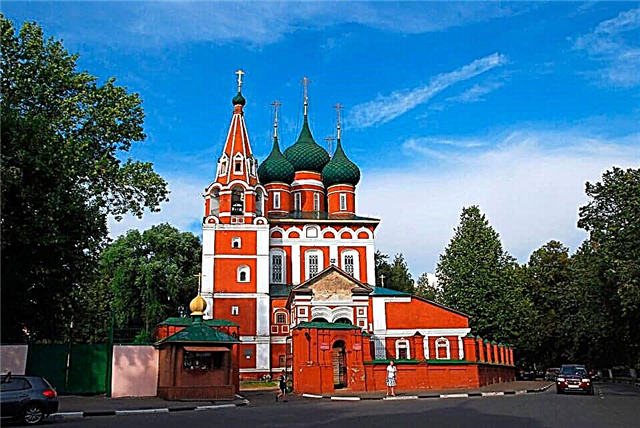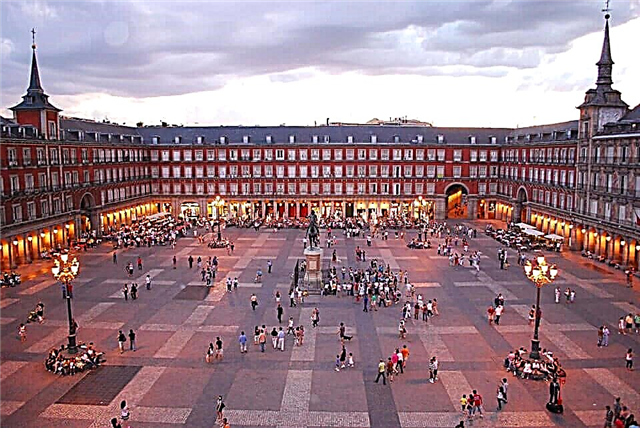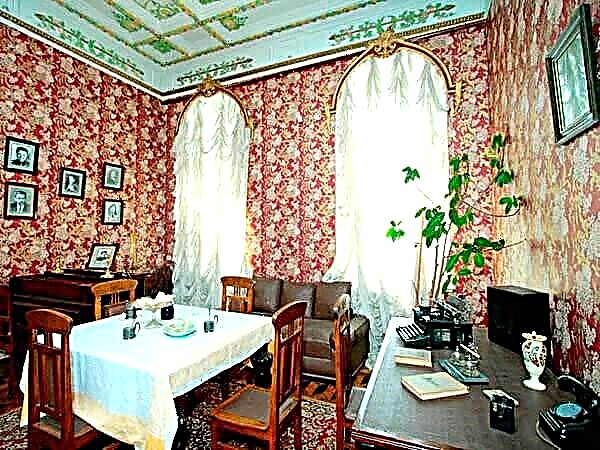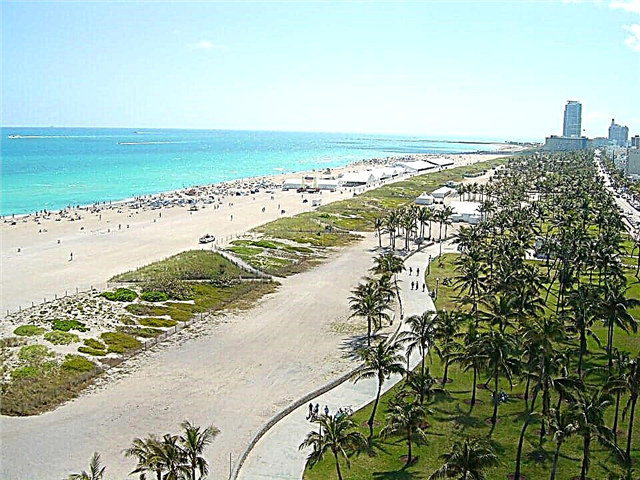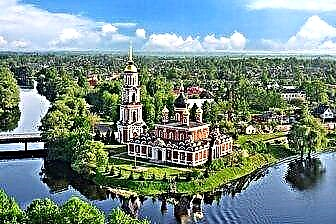Staraya Russa is a city in the Novgorod region with a rich past. Its heyday is associated with the salt industry. Despite the fact that the city stands on the river, there have been problems with drinking water for a long time, just because of the salt. The problem was solved only by building a water tower. However, there was a positive side to the high mineralization - a resort of the same name was opened in Staraya Russa.
Urban architecture is typical of central Russia. Despite the occupation, many buildings of the past have been preserved here, including the Transfiguration Monastery. In general, there are many religious sites here, and most of them are active. The war years remained in the memory of the townspeople and immortalized for posterity in the Museum of the North-Western Front. His collection also includes an exhibition commemorating the Afghan campaign.

The best hotels and hotels at affordable prices.
from 500 rubles / day
What to see and where to go in Staraya Russa?
The most interesting and beautiful places for walking. Photos and a short description.
Resurrection Cathedral
Built on the radiance of Polisti and Pererytitsa. The first building of the cathedral dates back to the 90s of the 17th century. In 1833, it was significantly rebuilt, including increased in size. The destruction from shelling during the war was massive. Repair was required, after which a cinema, a club, a warehouse and a museum were sequentially located in the cathedral. It was returned to the Russian Orthodox Church in 1992, at the same time the services began.

Cathedral Square and Water Tower
In the past, the square was called Torgovaya. There were shopping arcades here, which were finally destroyed during the occupation. Of the old buildings, only the water tower has survived. The construction helped to provide the city with fresh water, with which there were problems. It was impossible to drink water from the rivers around because of the salt. Therefore, in 1908, the authorities initiated the construction of a 50-meter Art Nouveau tower.

Resort "Staraya Russa"
One of the oldest resorts in central Russia was founded in 1828. In the 30s, the first buildings with baths of different classes were built. Subsequently, famous people of the country came here to improve their health, including the Grand Dukes Alexei and Vladimir. During the war, the resort became a hospital, and its buildings were partially destroyed. At the moment, Staraya Russa has the status of a CJSC.

Muravyov fountain
The most powerful mineral spring in the Old World. The fountain was named in honor of Minister Muravyov. He initiated the drilling of a new well. Its depth is about 110 meters. In 1859, the project was handed over to a special commission. The area around was ennobled, a metal tent was added. During the war years, the structure was destroyed, subsequently a new shed appeared, but due to rust it was dismantled.

Spaso-Preobrazhensky monastery
The oldest building in the city, recognized as a historical monument. It was first mentioned in chronicles in 1192. The first temple was made of wood and was soon destroyed by a great fire. The active development of the territory of the monastery was carried out in the 17th century with money from the salt industry. Now it houses a museum of local lore. The collection includes well-preserved frescoes from the 15th-17th centuries.

Church of the Holy Trinity
Throughout its history, the temple has experienced many troubles. In the 17th century, fire spread to it from a nearby building, which forced the church to be rebuilt. In 1836, a hurricane tore down the dome and damaged the ceilings. In the process of restoration, the construction plan was completely changed. During the Soviet era, there was a grain warehouse here. Since the 1980s, the church has been used as an exhibition hall. It was returned to the Russian Orthodox Church only in 1997.

Church of the Holy Great Martyr Mina
The date of the construction of the church is 1371, but this is inaccurate data. The temple is not mentioned in the chronicle sources, therefore the conclusions of the researchers are based on indirect facts. In Soviet times, the building was taken under the city executive committee. The temple suffered from shelling during the Second World War. It was repaired, but there was no full-fledged restoration. At the moment, services are not being held, and the doors are also closed for tourists.

St. George Church
The first temple appeared on this site in 1410. Its walls became the basis for the construction of a new church building in the middle of the 18th century. The church is one-headed, like its northern border. The bell tower was erected nearby in the 80s of the XIX century. During the Soviet era, divine services were not held. The temple was opened to parishioners for a short time during the occupation. After the war, the bell tower was dismantled and later restored.

Church of St. Nicholas the Wonderworker
The date of the construction of the first temple is 1371. It was larger than the present one and fell into decay during the Time of Troubles. In 1910 a new church was erected. A feature of its design was the absence of internal pillars. The three-tiered bell tower appeared only a century later. After the Bolsheviks came to power, there was a museum in the church, and later - a warehouse. In 1991, the building was handed over to the Old Believer community.
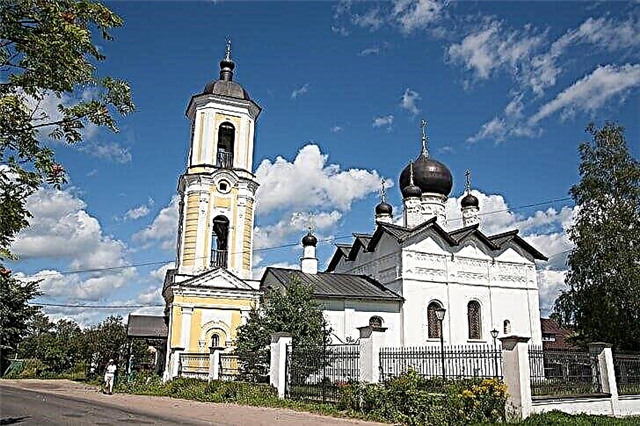
"The estate of the medieval Rushanin"
The interactive open-air museum covers an area of 1,700 m². The manor house from the Middle Ages was created on the basis of archaeological research. For this reason, the buildings here are authentic to the real, and the entertainment is also matched to the real crafts and everyday life of the past. The exposition has been receiving visitors since 2014. Buying a single ticket gives you access to all objects of the estate.

House-Museum of F.M.Dostoevsky
The writer and his family rented a two-story house in Staraya Russa as a summer residence in 1873. Here Dostoevsky worked on a number of his works, including The Brothers Karamazov. In 1909, it was decided to give the building on the embankment of the Pererytitsa River as a museum. But the process dragged on, and authentic interiors and personal belongings became available for inspection by visitors only in the 80s.

Museum of the Northwestern Front
Opened since 2003. The exposition of the museum covers all the events that took place in the district during the Great Patriotic War. The exhibitions describe the fighting, the underground liberation movement and the life of the city during the occupation. One of the important exhibits is the bell, cast in 1672. It was donated to the city by Peter I. Since 2011, a department dedicated to the war in Afghanistan has been functioning.

Monument "Eagle"
The project was started by V. Martynov in 1893. When he went to the front, work on the creation of the monument was continued by I. Wittenberg. The height of the composition is about 5 m. A sphere is installed on a tetrahedral stele, and on it is an eagle with spread wings. A monument to the soldiers of the Wilmanstrand regiment is dedicated. During the Great Patriotic War he suffered from bullets. Completely restored in 1953.

Living bridge
Thrown across the river Polist. The exact date of construction is unknown. The bridge originally consisted of rafts. They lay right on the water and swayed, that's why the name "Alive" appeared. They tried to officially rename it to "Aleksandrovsky", but the popular name was firmly entrenched. The bridge acquired its present appearance after 1890. From the 1920s until the war, a tram line ran here.

Tsaritsyno source
Created when drilling a well for a salt plant in the 30s of the last century. The power of the source allowed three mills to work. The name of the source was given in gratitude to Catherine II for the coat of arms of the city, reflecting its history. Currently, it is not used in any way, and the water from the source simply flows into the river. A small lake was formed around. It does not freeze even in winter in severe frosts.


